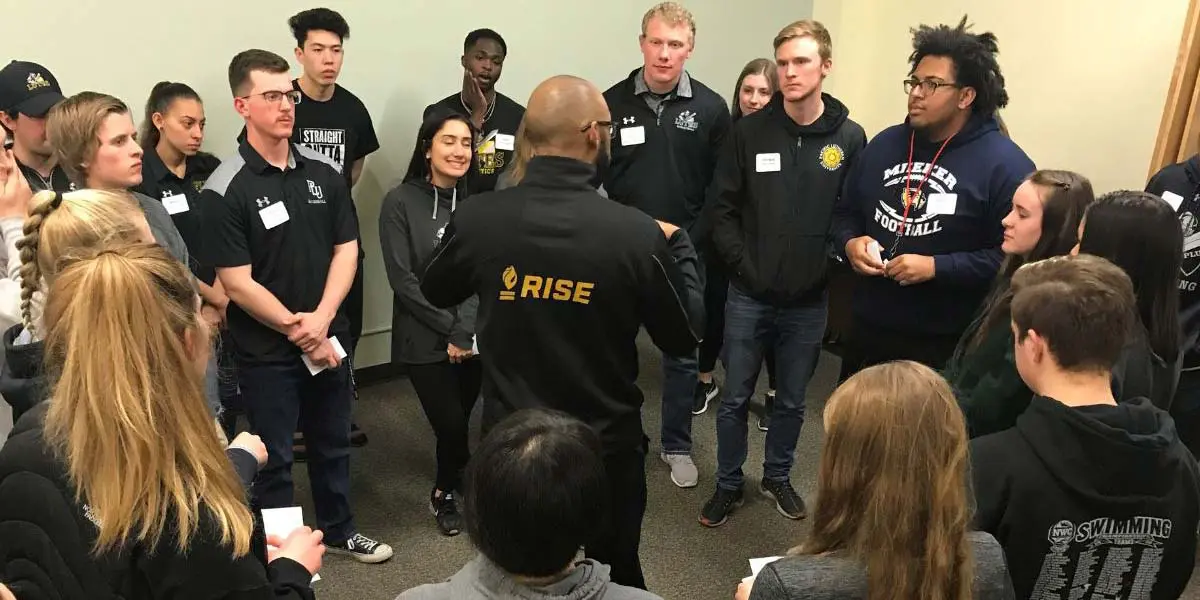RISE MODULE: Arab American Heritage Month
OVERVIEW & HISTORY
National Arab American Heritage Month (NAAHM), observed annually in April, celebrates the many cultures of Arab people, and acknowledges the contributions Arab Americans have made in the United States. NAAHM has been recognized sporadically across America since the early 1990s. In 2017, Arab America, a national media organization, started a nation-wide initiative to coordinate and advocate for NAAHM. Over time several government agencies began to respond. In 2019, Michigan Representatives Debbie Dingell and Rashida Tlaib issued a congressional resolution for AAHM to be recognized on a national scale. The resolution was referred to the House Committee on Oversight and Reform. A similar resolution was introduced in the U.S. Senate in 2020; however, it has not been passed yet.
Arab Americans are very culturally diverse as their heritage is connected to 22 nations, located from northern Africa through western Asia.
Arab America's mission is to “promote an accurate image of the Arab American community and the Arab World.” Starting in 2021, the organization and the NAAHM initiative saw a major accomplishment as the U.S. Department of State published a proclamation recognizing April as NAAHM. The following year, President Joe Biden, wrote a letter to Arab America to acknowledge the organization's work and celebrate NAAHM. While Arab American organizations and supports continue to have NAAHM recognized federally, others have joined President Biden and the Department of State. Forty-five state governors have issued proclamations commemorating April the initiative in support of the nearly 3.7 million Americans claiming Arab roots. Illinois, Oregon, and Virginia have passed permanent legislation designating the month of April as NAAHM, and Indiana's State Senate. Currently, Michigan, Ohio, New Jersey, and Rhode Island are pursuing legislation.
Arab Americans are very culturally diverse as their heritage is connected to 22 nations, located from northern Africa through western Asia. While the people of these nations are ethnically, politically, and religiously diverse, they share a common cultural and linguistic heritage. It is important to recognize all Arab people are not Middle Eastern and all Middle Eastern people are not Arab. In fact, linguistic and geographical factors mean these terms are not fully interchangeable.

CONVERSATION STARTERS:
- Engage with friends, family, and colleagues in discussions about the contributions, culture and art of Arab Americans. For example:
- Did you know National Arab American Heritage Month was in April?
- Did you know some Arab Americans were connected through language more so than region?
- Educate yourself, friends, and family on culturally specific holidays and traditions.
- Read and discuss a book or film created by an Arab American author or director.
- Try a new traditional Arab food dish.
- Engage in critical dialogue around biases and stereotypes affecting Arab American citizens. For example:
- What is a stereotype you've believed about Arab Americans? What influenced that belief?
- Some Arab Americans describe that after the terrorist attacks of 9/11, the actions of others made people suspicious of all Arabs. Have you ever observed a group of people being blamed collectively for the actions of individuals who share their race, faith, sexual orientation or nationality? Has this ever happened to you?
- Are there people that identify with Arab identity in your community? What are they like and from what Arab countries are they connected?
ACTION STEPS
- Discuss the things you read, listen to, or watch regarding Arab culture with others and do not be afraid to ask difficult questions.
- Educate yourself and your loved ones by looking up resources that enhance interactions and discussions with friends and colleagues of Arab descent.
- Be critical of yourself, your own communities, organizations, departments, and teams.
- Ask if the culture, practices, and policies are reflective of an inclusive organization that has addressed barriers for people who identify as Arab American.
- Speak up when you see someone being subject to discrimination because of their Arab identity.
WEBSITES
- Arab American Institute
- Arab America Foundation
- Smithsonian: Arab American History and Culture
- PBS: Celebrate Arab American Heritage Month
VIDEOS/FILMS
- Arab Indianapolis: A hidden history
- Don't Erase Me: The Modern Arab American
- The Muslim on the airplane
- American Arab
READINGS
- Arab in America by Toufic El Rassi
- NAAHM RESOURCE TOOLKIT FOR AMERICAN SPACES
- The Arab Americans: A History by Gregory Orfalea
Our
Partners
Stay
In Touch
Follow us on social media.